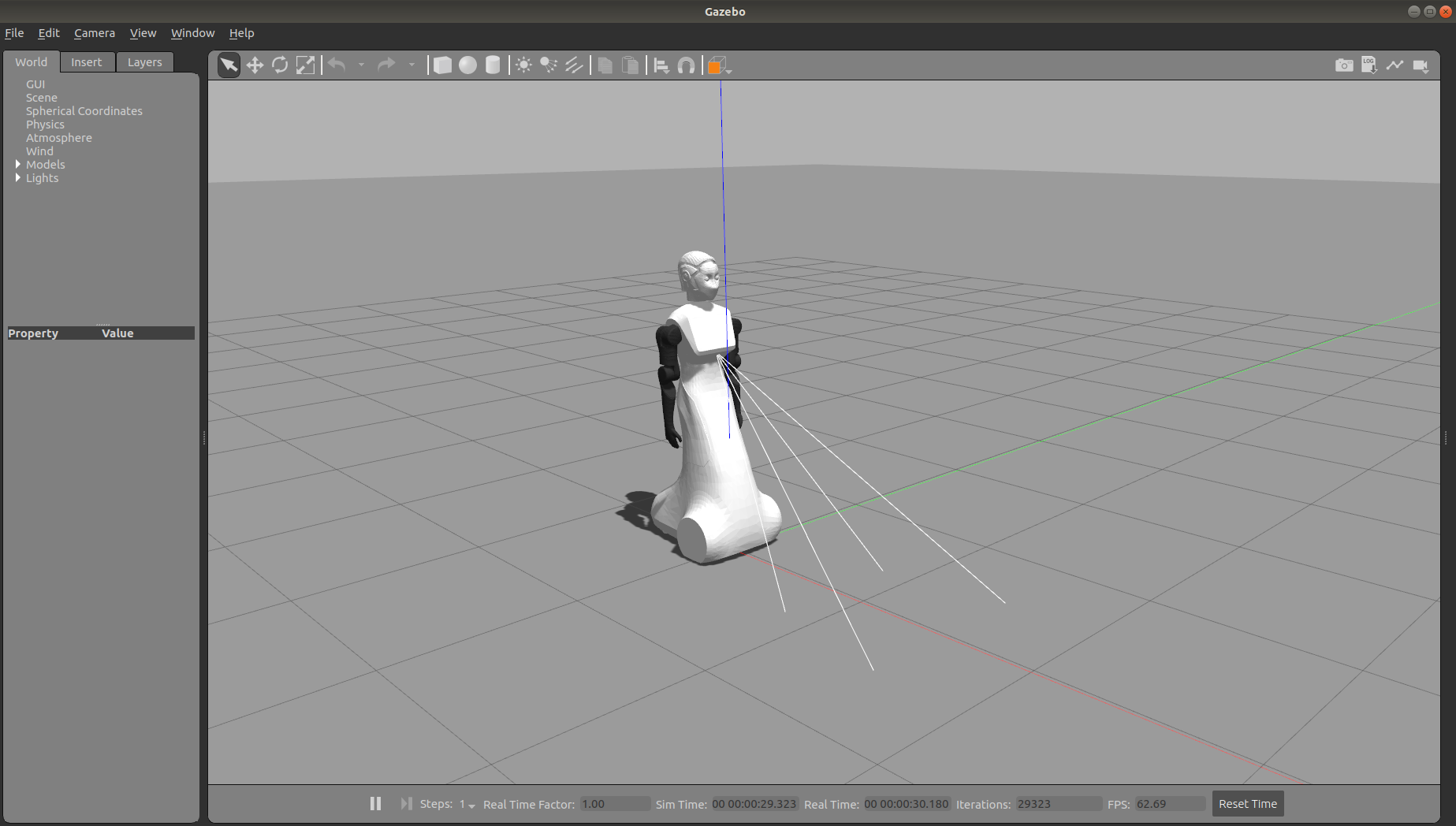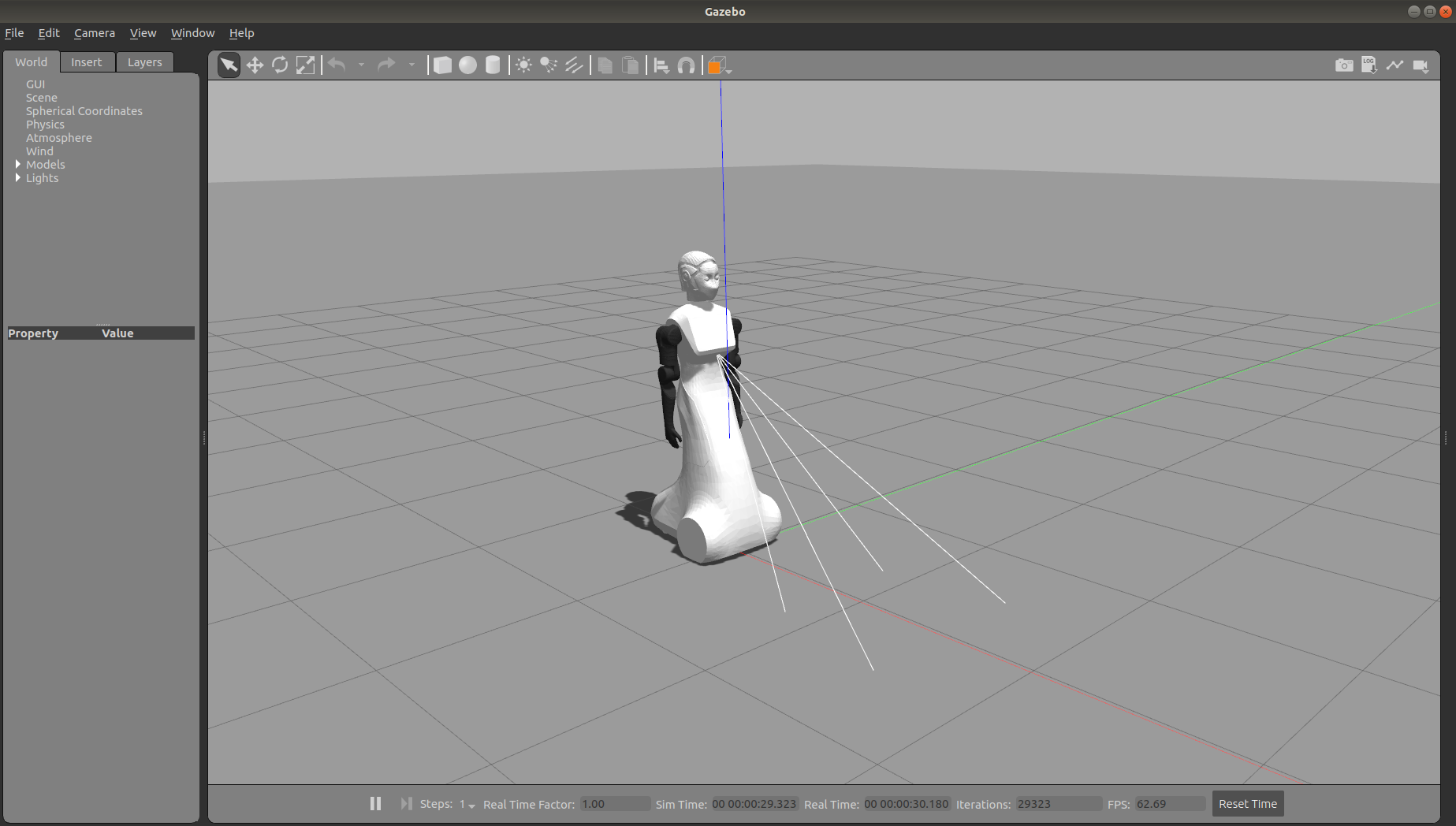| |
Installing ARI Simulation
Description: A brief summary of commands to install the required packages for ARI simulationTutorial Level: BEGINNER
Author: Alessandro Di Fava <alessandro.difava@pal-robotics.com>
Maintainer: Victor Lopez < victor.lopez@pal-robotics.com >
Support: ari-support@pal-robotics.com
Source: https://github.com/pal-robotics/ari_tutorials.git
Pre-Requisites
Make sure that all ROS repositories specified in the previous tutorial have been installed.
Linux commands
Show EOL distros:
Not supported. Currently supported ROS LTS: melodic.
Not supported. Currently supported ROS LTS: melodic.
Not supported. Currently supported ROS LTS: melodic.
Not supported. Currently supported ROS LTS: melodic.
Source-based installation
Currently source-based installation is provided. First of all open a terminal and create an empty workspace:
mkdir ~/ari_public_ws cd ~/ari_public_ws
Download the file ari_public-melodic.rosinstall. Copy the rosinstall file in ~/ari_public_ws. Then run the following instruction in order to clone all the required repositories within the workspace:
rosinstall src /opt/ros/melodic ari_public-melodic.rosinstall
Set up rosdep
sudo rosdep init rosdep update
Then you may run the following instruction to make sure that all dependencies referenced in the workspace are installed
rosdep install --from-paths src --ignore-src --rosdistro melodic --skip-keys="opencv2 opencv2-nonfree pal_laser_filters speed_limit_node sensor_to_cloud hokuyo_node libdw-dev python-graphitesend-pip python-statsd pal_filters pal_vo_server pal_usb_utils pal_pcl pal_pcl_points_throttle_and_filter pal_karto pal_local_joint_control camera_calibration_files pal_startup_msgs pal-orbbec-openni2 dummy_actuators_manager pal_local_planner gravity_compensation_controller current_limit_controller dynamic_footprint dynamixel_cpp tf_lookup opencv3 librealsense2-dev librealsense2-dkms hey5_transmissions ydlidar_ros_driver" -y
Then, you may proceed building the workspace:
source /opt/ros/melodic/setup.bash catkin build -DCATKIN_ENABLE_TESTING=0
Once you compiled all packages and sourced the environment (source devel/setup.bash) it's all ready to go.
Testing the installation
First of all open a console and source the workspace:
source ./devel/setup.bash
To launch ARI, execute:
roslaunch ari_gazebo ari_gazebo.launch public_sim:=true

If you managed to launch the simulation then the installation has been successful. If you have rendering problems please update your graphics driver.
Source-based installation
Currently source-based installation is provided. First of all open a terminal and create an empty workspace:
mkdir ~/ari_public_ws cd ~/ari_public_ws
Download the file ari_public-noetic.rosinstall. Copy the rosinstall file in ~/ari_public_ws. Then run the following instruction in order to clone all the required repositories within the workspace:
rosinstall src /opt/ros/noetic ari_public-noetic.rosinstall
Set up rosdep
sudo rosdep init rosdep update
Then you may run the following instruction to make sure that all dependencies referenced in the workspace are installed
rosdep install --from-paths src --ignore-src --rosdistro noetic --skip-keys="opencv2 opencv2-nonfree pal_laser_filters speed_limit_node sensor_to_cloud hokuyo_node libdw-dev python-graphitesend-pip python-statsd pal_filters pal_vo_server pal_usb_utils pal_pcl pal_pcl_points_throttle_and_filter pal_karto pal_local_joint_control camera_calibration_files pal_startup_msgs pal-orbbec-openni2 dummy_actuators_manager pal_local_planner gravity_compensation_controller current_limit_controller dynamic_footprint dynamixel_cpp tf_lookup opencv3 librealsense2-dev librealsense2-dkms hey5_transmissions ydlidar_ros_driver python-pyside orocos_kdl" -y -r
A few packages might be missing, but this won't impact the simulation.
Then, you may proceed building the workspace:
source /opt/ros/noetic/setup.bash catkin build -DCATKIN_ENABLE_TESTING=0
Once you compiled all packages and sourced the environment (source devel/setup.bash) it's all ready to go.
Testing the installation
First of all open a console and source the workspace:
source ./devel/setup.bash
To launch ARI, execute:
roslaunch ari_gazebo ari_gazebo.launch public_sim:=true

If you managed to launch the simulation then the installation has been successful. If you have rendering problems please update your graphics driver.







